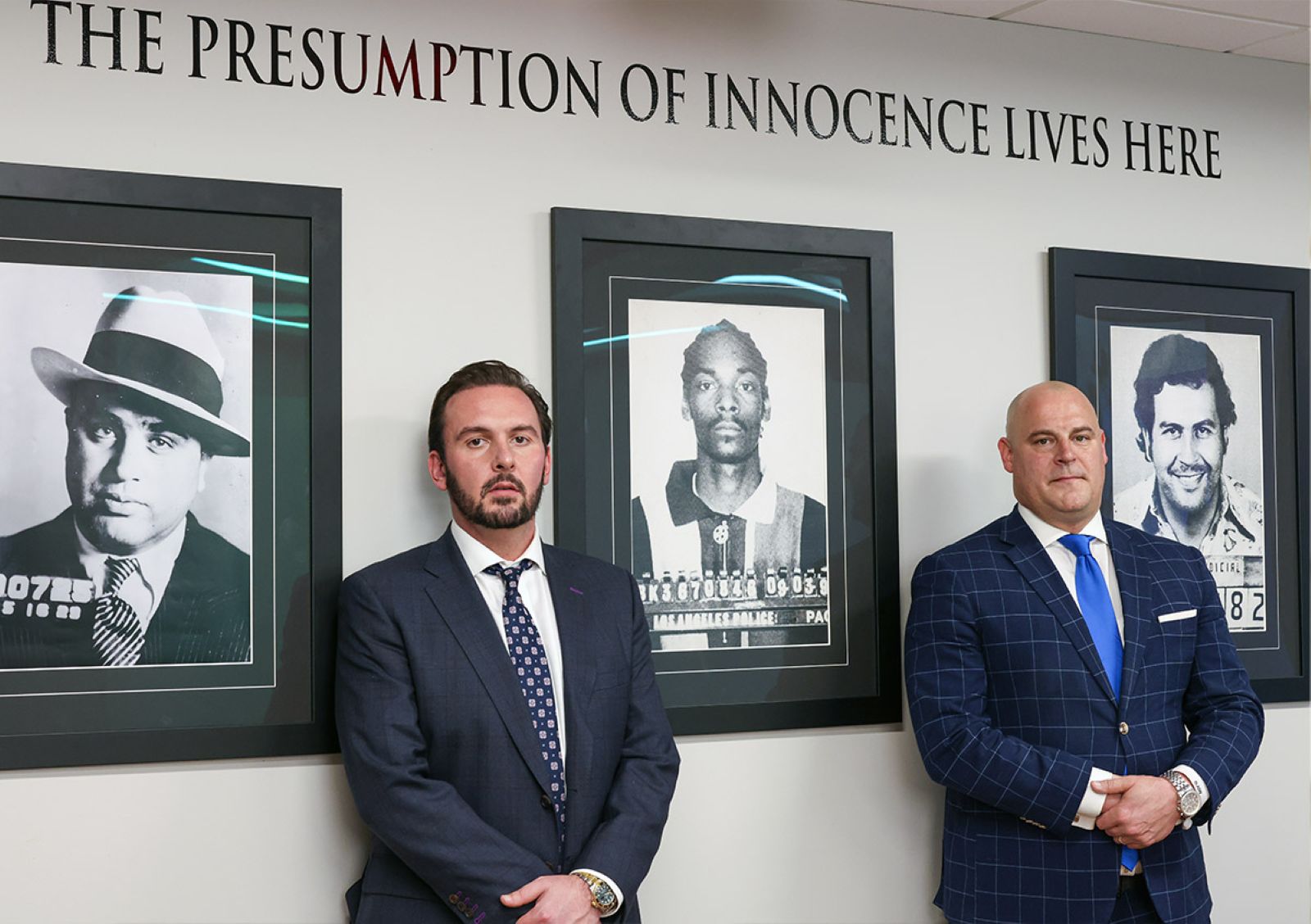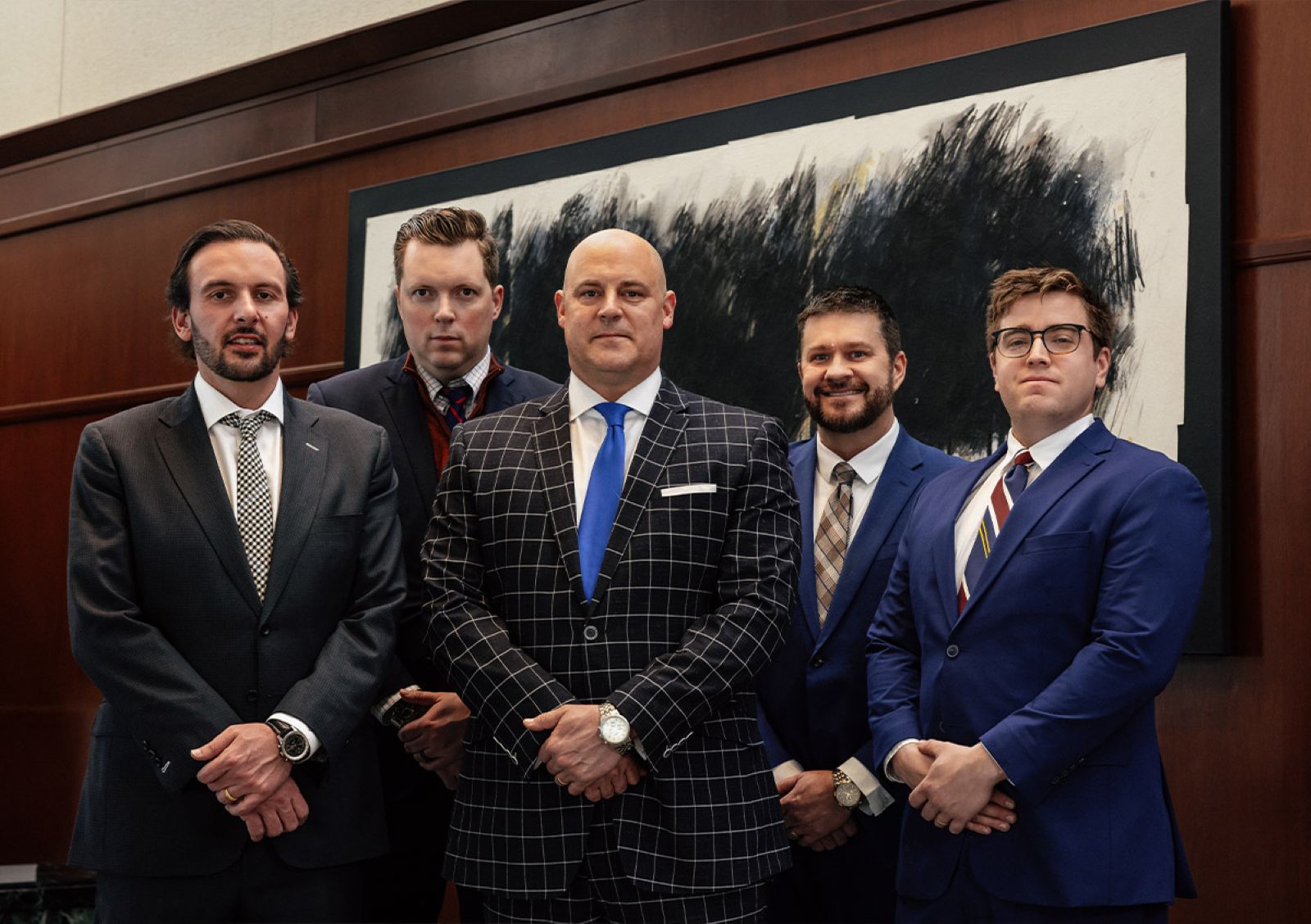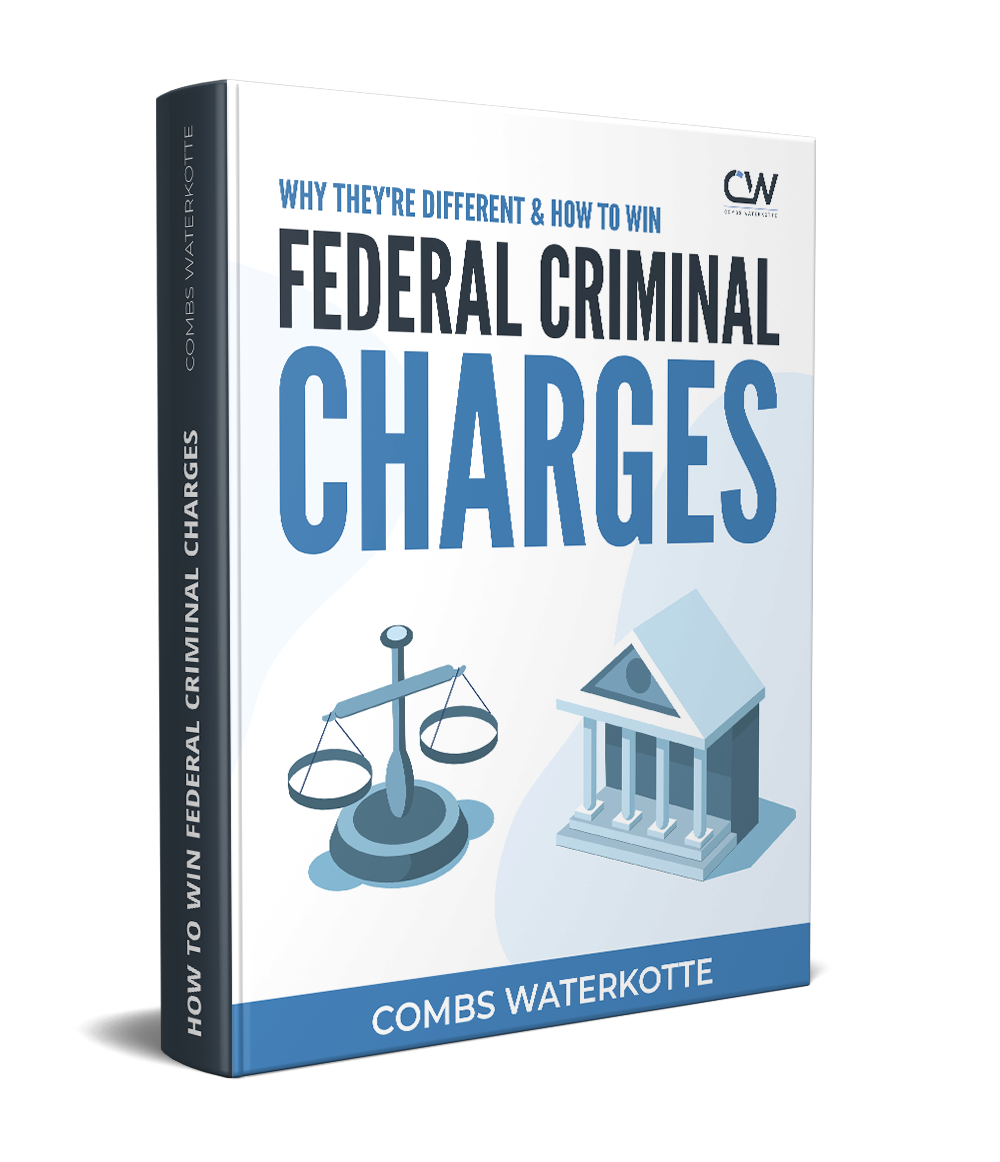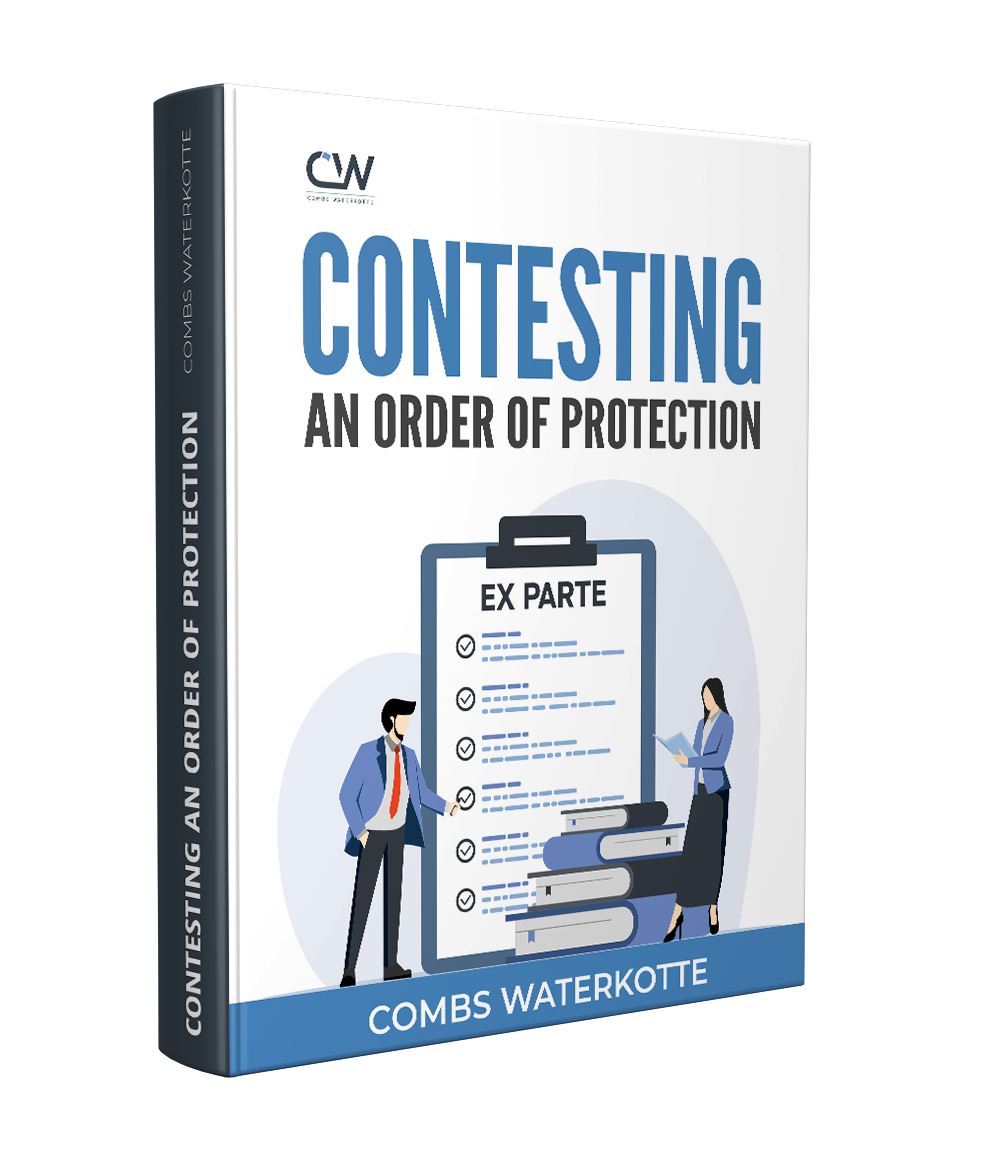What Are Federal Terrorism Crimes?
Federal terrorism crimes are defined under 18 U.S.C. § 2331 and related statutes as acts intended to intimidate or coerce a civilian population, influence government policy, or affect government conduct through mass destruction, assassination, or kidnapping. These cases often involve allegations of weapons use, conspiracy, financial support, or threats involving government facilities or critical infrastructure.
Because of their political and national security implications, terrorism allegations are prosecuted aggressively, often with involvement from federal task forces, undercover agents, and electronic surveillance. You need to counter with a skilled and experienced federal defense team.
Your future is on the line. Call Combs Waterkotte's federal terrorism crimes defense lawyers at (314) 900-HELP or reach out online for a free, confidential consultation.

Common Federal Terrorism Charges in Missouri
Some of the most frequently charged federal terrorism-related offenses include:
- Providing material support to terrorists (18 U.S.C. § 2339A) or designated terrorist organizations (§ 2339B).
- Conspiracy to commit terrorism or use weapons of mass destruction (18 U.S.C. § 2332a).
- Acts of domestic terrorism such as bomb threats, arson, or attacks on public infrastructure.
- International terrorism offenses including hijacking, hostage-taking, or attacks outside U.S. territory that harm American nationals.
- Financing terrorism through fundraising, money laundering, or resource provision.
Penalties for Federal Terrorism Offenses
Convictions for federal terrorism crimes often carry:
- Mandatory minimum sentences: Some offenses carry 20 years to life, or the death penalty for terrorism resulting in death.
- Federal prison time: Sentences are served in high-security federal facilities.
- Asset forfeiture: Seizure of property, funds, and any alleged tools of terrorism.
- Lifetime supervised release: Strict monitoring even after prison time is served.
- Permanent federal record: Affecting employment, travel, and immigration status forever.
Because of the harsh penalties, early and aggressive defense strategy from an expert federal terrorism crimes lawyer in Missouri is critical.
Bottom Line: Federal terrorism charges carry life-altering penalties. The earlier you involve an experienced Missouri federal criminal defense lawyer, the better your chances of building a powerful, strategic case.

What's the Difference Between Federal and State Terrorism Crimes in Missouri?
The difference between federal and state terrorism crimes comes down to jurisdiction, scope, and severity of prosecution. Here’s a clear breakdown:
Difference 1 — Jurisdiction
- Federal Terrorism Crimes — Prosecuted in U.S. District Courts under federal law (e.g., 18 U.S.C. § 2331–2339). They typically involve conduct that crosses state or national borders, affects interstate commerce, targets federal property, or implicates national security.
- State Terrorism Crimes — Prosecuted in state court under state statutes. These usually involve threats, violence, or attacks that occur entirely within one state’s borders and do not trigger federal jurisdiction.
Difference 2 — Investigating Agencies
- Federal — FBI, DOJ’s National Security Division, DHS, and Joint Terrorism Task Forces (JTTFs) usually take the lead. They may use advanced tools like wiretaps, FISA warrants, and federal grand juries.
- State — Local police, state highway patrol, and state prosecutors handle the case. Sometimes they work alongside federal agencies if there’s a potential federal angle.
Difference 3 — Penalties
- Federal — Penalties are generally harsher, often including mandatory minimums, life sentences, or even the death penalty if the crime caused death. Sentences are served in federal prison with no parole.
- State — Sentences vary by state law, and parole or probation may be available in some cases.
Difference 4 — Types of Charges
- Federal Examples — Material support to terrorist organizations (§2339B), use of weapons of mass destruction (§2332a), conspiracy to commit terrorism, international terrorism offenses.
- State Examples — Making terroristic threats, arson of public buildings, mass violence threats at schools or workplaces, criminal damage to critical infrastructure.
Examples of Federal Terrorism Crimes We Defend in Missouri
Combs Waterkotte is a leading federal terrorism crimes defense firm based in St. Louis, with skilled lawyers in Kansas City and across Missouri. Here are several hypothetical examples of federal terrorism crimes that would likely trigger federal jurisdiction in Missouri. These are strictly hypothetical scenarios to illustrate how the law is applied:
Example 1: Bomb Threat on Federal Property
A Missouri resident emails a threat to bomb a federal courthouse in St. Louis.
Why federal? It targets federal property and disrupts federal government operations, triggering federal jurisdiction under statutes prohibiting threats and attacks on government facilities.
Example 2: Online Recruitment for a Terrorist Organization
An individual uses social media to encourage others to join a designated foreign terrorist organization and provides links for fundraising.
Why federal? This is “providing material support” under 18 U.S.C. § 2339B, a federal crime, even if no actual attack occurs.
Example 3: Attack on Critical Infrastructure
A group sabotages a Missouri power grid facility to disrupt services for political purposes, causing widespread blackouts.
Why federal? Because it affects interstate commerce, public safety, and critical infrastructure, the FBI and DHS would likely prosecute under federal anti-terrorism statutes.
Example 4: Plot to Hijack a Plane
A conspiracy is uncovered where individuals plan to seize an aircraft flying from Kansas City to Chicago.
Why federal? Airplane hijacking is a federal offense under 49 U.S.C. § 46502, automatically bringing in federal prosecutors.
Example 5: Financing a Terror Plot
A person funnels cryptocurrency to support an overseas attack targeting U.S. soldiers abroad.
Why federal? Providing funds to facilitate terrorism violates federal anti-terrorism financing laws (18 U.S.C. § 2339C).
Example 6: Attempt to Use a Biological Agent
Someone attempts to release a biological agent in a public transportation system to create mass panic.
Why federal? Using or attempting to use a weapon of mass destruction (18 U.S.C. § 2332a) is a federal terrorism crime with potential life imprisonment.
Defense Strategies for Federal Terrorism Cases in Missouri
Our Missouri federal terrorism crimes lawyers work to dismantle the prosecution’s case. Common defense approaches include:
- Negotiating lesser charges: Reducing exposure by working to eliminate terrorism enhancements or negotiate alternative resolutions.
- Challenging surveillance evidence: Questioning the legality of wiretaps, electronic monitoring, or FISA warrants.
- Attacking conspiracy allegations: Showing lack of agreement or intent to commit a terrorist act.
- Questioning witness credibility: Undermining informants or cooperating witnesses with credibility issues.
- Suppression motions: Excluding unlawfully obtained evidence or coerced statements.
We prepare every case as though it will go to trial, giving you the strongest possible position for acquittal or favorable resolution.
Key Takeaway: Federal terrorism crimes are broader, carry much higher stakes, and involve powerful federal prosecutors with vast resources. If you’re accused of terrorism in Missouri, your first step should be speaking to a federal criminal defense lawyer who knows how to fight these complex cases.

Federal Terrorism Crimes FAQ
Are terrorism charges always federal?
Not always. Some terrorism-related acts are prosecuted in state court, but if the conduct affects interstate commerce, involves federal property, or is charged under federal statutes, it will be tried in federal court.
What agencies investigate terrorism crimes?
Investigations are usually handled by the FBI’s Joint Terrorism Task Force, often in cooperation with DHS, ATF, and local law enforcement. These investigations can involve extensive surveillance and undercover operations.
Can terrorism charges be dropped?
Yes, if your lawyer can show insufficient evidence, constitutional violations, or lack of intent, charges can be dismissed or reduced. Early intervention by a skilled federal defense attorney is critical.
What penalties do terrorism convictions carry?
Penalties range from years to life in federal prison, heavy fines, forfeiture of assets, and lifetime supervised release. Some crimes, such as terrorism resulting in death, may carry the death penalty.
Why do I need a lawyer experienced in federal court?
Federal terrorism cases are complex, involve unique procedures, and are prosecuted by highly trained federal attorneys. You need a defense lawyer who understands federal rules, discovery, and trial practice to protect your rights.
Why You Should Choose Combs Waterkotte to Defend Your Federal Terrorism Case
Not all federal defense law firms are created equal. Our approach to federal terrorism crimes is built on client focus, trial readiness, unmatched resources, and decades of combined expertise.
- Client-Centered Representation: You are never just another case file—you are our focus. We take the time to understand your priorities, answer your questions, and keep you informed at every stage.
- Trial-Ready Defense: We prepare every federal terrorism case as though it will go before a judge, giving us leverage to secure better outcomes in negotiations. Prosecutors know which attorneys are prepared to go to trial and which aren’t.
- Extensive Resources: From forensic experts to investigators, we bring in the right resources to challenge the government’s evidence and expose weaknesses in their case.
- Experience & Expertise: With over 60 years of combined federal courtroom experience, our attorneys know the judges, prosecutors, and unique procedures in Missouri’s Eastern and Western Districts—and how to use that knowledge to your advantage.
When everything is on the line, you deserve a federal terrorism crimes defense team that is dedicated to fighting for the best possible result.


































